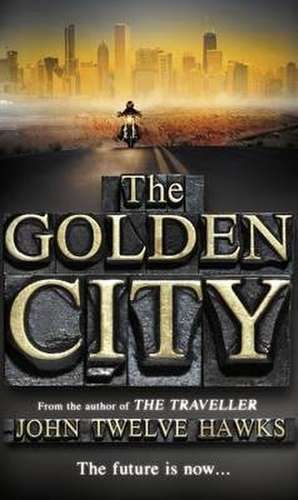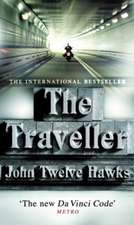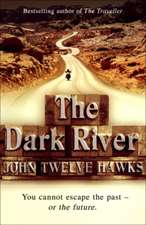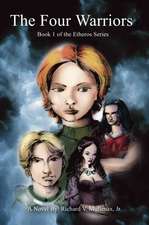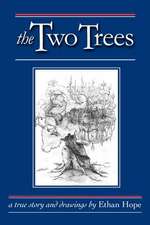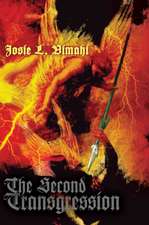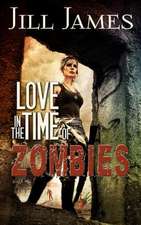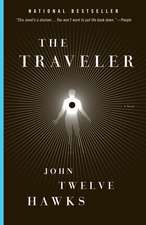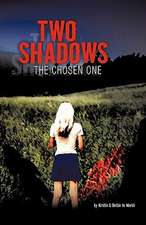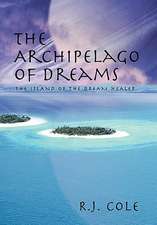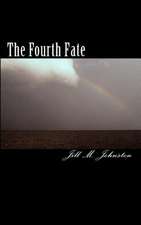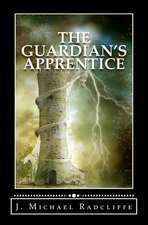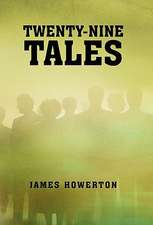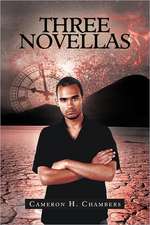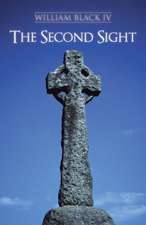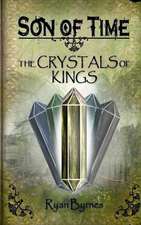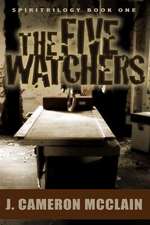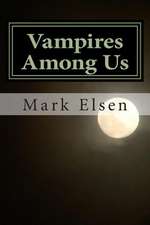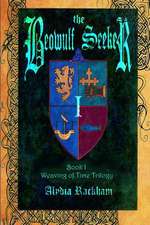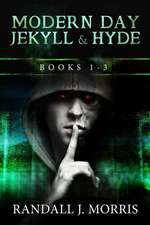The Golden City: The Fourth Realm Trilogy
Autor John Twelve Hawksen Limba Engleză Paperback – 3 feb 2011
| Toate formatele și edițiile | Preț | Express |
|---|---|---|
| Paperback (2) | 106.52 lei 3-5 săpt. | |
| Vintage Books USA – 31 mai 2010 | 106.52 lei 3-5 săpt. | |
| Transworld Publishers Ltd – 3 feb 2011 | 118.68 lei 6-8 săpt. |
Preț: 118.68 lei
Nou
Puncte Express: 178
Preț estimativ în valută:
22.72€ • 23.62$ • 19.04£
22.72€ • 23.62$ • 19.04£
Carte tipărită la comandă
Livrare economică 14-28 martie
Preluare comenzi: 021 569.72.76
Specificații
ISBN-13: 9780552153362
ISBN-10: 0552153362
Pagini: 496
Dimensiuni: 111 x 178 x 38 mm
Greutate: 0.24 kg
Editura: Transworld Publishers Ltd
Seria The Fourth Realm Trilogy
ISBN-10: 0552153362
Pagini: 496
Dimensiuni: 111 x 178 x 38 mm
Greutate: 0.24 kg
Editura: Transworld Publishers Ltd
Seria The Fourth Realm Trilogy
Notă biografică
John Twelve Hawks (also known as J12H or JXIIH to his fans) is the author of the 2005 dystopian international bestselling novel The Traveler and its successors, The Dark River and The Golden City, collectively comprising the Fourth Realm Trilogy.
Visit his website at: www.www.johntwelvehawks.com
Visit his website at: www.www.johntwelvehawks.com
Descriere
In a world that exists in the shadow of our own, the conflict between the Brethren and the Travellers reaches its devastating climax...And Maya, the Harlequin warrior pledged to protect Gabriel at all costs, is forced to make a choice that will change her life forever...
Extras
1
Early in the evening, a North Sea storm swept through the German countryside and drenched Berlin. Raindrops rattled on the glass panes of the greenhouse and the orangery in Babelsberg Park. The willow trees around the lake swayed back and forth like underwater plants while a flock of ducks huddled together on their little island. In the streets around Potsdamer Platz, the traffic was slow and halting, the cream-colored taxicabs honking at one another in the clogged intersections while delivery trucks grumbled like large shambling creatures.
Windshields were streaked with water and it was difficult to see the faces of the drivers. The sidewalks in the Mitte district were empty, and it seemed as if much of Berlin's population had disappeared. But the surveillance cameras remained like mute guardians of the city. They tracked a young woman holding a newspaper over her head as she darted from an office doorway to a waiting car. They followed a restaurant deliveryman as he pedaled a bicycle up the street, a life revealed in a series of grainy black-and-white images: a desperate face with wet hair plastered to the forehead, legs moving frantically while a cheap plastic poncho flapped in the wind.
On Friedrichstrasse, a license-plate scanner mounted on a building photographed a black Mercedes stopped at a traffic light. The plate number was recorded and automatically checked against a central database as Michael Corrigan and Mrs. Brewster sat in the backseat and waited for the light to turn green. Mrs. Brewster had taken a tube of lipstick out of her purse and was studying her face in a compact mirror. This was behavior quite out of character for the current head of the Brethren's executive board; unless there was a party or some other kind of special event, Mrs. Brewster paid minimal attention to her personal appearance. She was a tweed-and-practical-shoes sort of woman, whose only gesture to vanity was the artificial color of her chestnut-brown hair.
"God, I look tired," she announced. "It's going to take an effort to get through dinner with Hazelton and his friends."
"If you want, I'll do all the talking."
"That would be wonderful, Michael. But it's not necessary. There's been a change of plans."
With exaggerated decisiveness, Mrs. Brewster snapped the mirror shut and dropped it into her purse, then slipped on a pair of sunglasses. The dark glasses covered her eyes and upper cheekbones like a half mask.
"Terry Dawson just sent me an e-mail from the research center in New York," she said. "They've finished building the new version of the quantum computer, and Dawson has been testing the system. I want you to be there tomorrow afternoon when the computer becomes fully operational."
"Perhaps they could postpone everything for a few days so I could attend the executive board meeting."
"The Crossover Project is a good deal more important than any meeting. The original version of this computer put us in contact with an advanced civilization that began to supply us with technical data. Dr. Dawson wants you to be there if the civilization contacts us again."
The Mercedes turned another corner. Michael stared at Mrs. Brewster for a few seconds, but the sunglasses and the dim light made it difficult to know what she was thinking. Was she telling him the truth, or was this just a strategy to separate him from the rest of the Brethren? Her mouth and neck showed some tension, but there was nothing unusual about that.
"I think it would be easier if we interviewed Dawson with a video conference camera," Michael said.
"I want a full assessment of the project, and you can only do that if you're at the laboratory. Your clothes are packed and waiting at the hotel. A chartered jet is fueling at Schanefeld Airport."
"We've been meeting people for the last three days . . ."
"Yes. I know. Everything is rather frantic. But the quantum computer has always been our top priority. After the first computer was destroyed, we shut down the genetic research program so that we could increase Dawson's funding. Kennard Nash was convinced that this other civilization was eager to send us technological miracles. Before we spend more money, we need to see if this new machine actually works."
Nash's name ended the conversation. Both Michael and Mrs. Brewster had watched Nathan Boone kill the head of the Brethren as he ate lunch on Dark Island. It felt as if Nash were still with them, sitting in the front seat and frowning like a father displeased with his children's activities.
The car stopped in front of the Hotel Adlon, and Mrs. Brewster said something in German to the driver. Moments later, Michael's luggage was carried from the hotel and loaded into the trunk.
"Thanks so much for doing this, Michael. I can't rely on anyone else."
"Don't worry. I'll handle it. Get some rest."
Mrs. Brewster gave him one of her more gracious smiles. Then she slipped out of the backseat and hurried into the hotel.
As the car pulled away from the curb, Michael used his handheld computer to access the security system at Wellspring Manor--the country estate in southern England controlled by the Evergreen Foundation. Moving the cursor, he clicked through surveillance videos of the front door, the service entrance, and, yes, there it was: a black-and-white image of his father's body lying on a medical table. Matthew Corrigan looked like a dead man, but sensors attached to his body detected a sporadic heartbeat.
The Traveler turned his eyes away from the small screen and gazed out the window. Still there but not there, he thought. An empty shell.
* * *
The chartered jet stopped in Maine for refueling and customs inspection, and then continued to the Westchester County Airport, located in the suburbs north of New York City. A town car was parked on the tarmac and a member of the security staff stood beside it like an honor guard. Then it was Yes, Mr. Corrigan. Hope you had a pleasant flight, Mr. Corrigan, and the car carried him down a two-lane country road. They glided past stone walls that had once surrounded apple orchards and dairy cows. These days, the land was too expensive for farming, and the area was dotted with corporate headquarters and the renovated farmhouses owned by investment bankers.
The Evergreen Foundation's research center was at the end of a long gravel driveway. Flower beds and pine trees were a pleasant distraction from the high wall that kept out the rest of the world. The compound was dominated by four glass-and-steel buildings that housed the foundation library, genetic laboratory, administrative center, and computer research facility. At the center of this quadrangle was the neurological cybernetics building where Michael had once been attached to the sensors of the quantum computer.
Michael turned on his handheld computer and checked his daily schedule. This was one activity that truly gave him pleasure. Every morning he was sent a schedule that told him what he was going to do in fifteen-minute segments; the activities and the tight schedule confirmed that he was an important member of a powerful organization. When he looked back on his past life in Los Angeles, there were always hours and sometimes days when nothing was going on. The empty time made it difficult not to feel weak and pathetic.
Now that Michael was a Traveler, the schedule helped him stay focused on the reality in front of him. If he thought about it--really thought about it--the other realms made the human world appear false or unreal. But that was a road straight to craziness. His schedule showed that all his actions had order and meaning. Even ordinary activities like "lunch" or "sleep" were on the list. His occasional encounters with prostitutes were placed in the category of "entertainment."
"Now what?" Michael asked the driver. "The schedule doesn't say where I'm supposed to meet Dr. Dawson."
The driver looked confused. "I'm sorry, Mr. Corrigan. But no one gave me any instructions."
Michael got out of the car and walked up a sloping flagstone path to the administration center. He still had a Protective Link chip implanted beneath the skin on the back of his right hand. As he approached the building, it sensed his arrival, verified his identity, and confirmed that he had passed through the main gate. The glass door glided open, and he entered the lobby.
There was no need for a security guard or a receptionist; the lobby scanners tracked his passage across the room. But when Michael reached the elevators--nothing happened. Feeling like an unwelcome guest, he waved his hand at the elevator doors. The lobby seemed very empty and quiet at that moment, and he wondered what to do.
Michael heard a sharp click and turned as Nathan Boone emerged from the side door. The head of security for the Evergreen Foundation wore a black business suit without a necktie. Boone had fastened the top button of his white shirt, and this small detail gave him a severe appearance.
"Good morning, Mr. Corrigan. Welcome back to the research center."
"Why can't I enter the elevator?"
"We had a personnel problem a few days ago, and I restricted access to the offices. I'll reauthorize your chip this afternoon, but right now you need to meet with Dr. Dawson."
They left the lobby together and walked across the compound. "What kind of problem?" Michael asked.
Boone raised his eyebrows. "Excuse me?"
"You mentioned a problem with the staff. As a representative of the executive board I need to know what's going on at this facility."
"An employee named Susan Howard ended her life. She had problems with depression and contacted the so-called Resistance using an Internet chat room. We thought it best to change our security codes."
Did he kill her? Michael wondered. It bothered him that Boone could destroy someone without board authorization, but before he could ask any more questions, they entered the computer building and Terry Dawson hurried out to greet them. The scientist was an older man with white hair and a broad, fleshy face. He seemed nervous about showing the computer to Michael.
"Good morning, Mr. Corrigan. We met several months ago when General Nash gave you a tour of the research center."
"Yes. I remember."
"Nash's sudden death was a real shock to all of us. He was the principal force pushing for the quantum computer."
"The board has decided to rename your building the Kennard Nash Computer Center," Michael said. "If the General were still alive, he would also want to see some results. There have been too many delays in this project."
"Of course, Mr. Corrigan. I share your concern." A door opened automatically and Dawson led them down a hallway. "I do need to mention something before we enter the laboratory. Our research team is divided into two groups with different security clearances. The technicians and support staff have blue-level access. A much smaller core group, with red-level access, knows about the messages we've received from our friends."
"How do you know they're friends?" Michael asked.
"That was General Nash's view. He believed that the messages came from an advanced civilization in one of the different realms. Anyone who gives us such useful technical data should be considered friendly."
The three men entered a control room filled with computer monitors and equipment panels that glowed with red and green lights. A window looked out on a much larger room where a woman wearing a hijab and two younger men in lab coats were testing the quantum computer. The computer itself was visually unimpressive, a stainless-steel box about the size of an upright piano. Large electrical cables were attached to the base of this box, and smaller cables were attached to the side.
"Is this the quantum computer?" Michael asked. "It looks very different from what I remember."
"It's a whole new approach," Dawson explained. "The old version used electrons floating in super-cooled helium. This new computer uses an oscillating electric field to control the spin-up or spin-down direction of individual electrons. The electrons serve as qubits--the quantum bits--of our machine."
"So the technology is different, but it works the same way?"
"Yes. It's the same principle. An ordinary computer--no matter how powerful it is--stores and processes information with bits that exist in either of two states: one or zero. But a qubit can be a one, a zero, or a superposition of both values at the same time, allowing for an infinite number of states. This means our machine can calculate difficult problems a great deal faster than any computer currently in operation."
Michael stepped closer to the computer, but he kept his hands away from the cables. "And how does this lead to messages from another civilization?"
"Quantum theory tells us that electrons can be multiple places at the same time. This is the reason why the atoms in a molecule don't shatter when they bump into each other. The electrons act as both particle and wave--they form a sort of cloud that binds atoms together. Right now, our qubit electrons exist here, inside this machine, but they also 'go away' for a very brief moment."
"They can't just disappear," Michael said. "They have to go somewhere."
"We have reason to believe that the electrons enter a parallel world and then, when observed, return to our particular reality. It's clear that our distant friends have designed a much more sophisticated quantum computer. They capture the particles, rearrange them into messages, and send them back to us. The electrons shuttle back and forth between worlds so quickly that we only detect the result--not the motion itself."
One of the young men rapped his knuckles on the window. Dawson nodded and switched on an intercom.
"We've done the system check three times," the technician said. "Everything is ready to go."
"Good. We're going to start up now. Dr. Assad, would you please come into the control room."
Dawson switched off the intercom as the young woman with the headscarf entered the control room. She had a round face and very dark eyebrows. "I'd like you to meet Dr. Assad. She was born in Syria, but has spent most of her life here in the States. With Mr. Boone's permission, she's been given a red-level security access."
Dr. Assad smiled shyly and avoided looking into Michael's eyes. "It's an honor to meet you, Mr. Corrigan."
Everyone sat down and Dr. Dawson starting typing commands. Boone was the last person to find a chair, but he never relaxed. He was either watching the people in the room or studying the computer screen.
For the first hour, they followed an established protocol. Michael heard an electrical humming noise that started and paused and started again. Sometimes it was so loud the observation window began to vibrate. As different levels of the computer were tested, Dr. Assad spoke with a calm voice.
"The first ten qubits are operative. Now activating group two."
From the Hardcover edition.
Early in the evening, a North Sea storm swept through the German countryside and drenched Berlin. Raindrops rattled on the glass panes of the greenhouse and the orangery in Babelsberg Park. The willow trees around the lake swayed back and forth like underwater plants while a flock of ducks huddled together on their little island. In the streets around Potsdamer Platz, the traffic was slow and halting, the cream-colored taxicabs honking at one another in the clogged intersections while delivery trucks grumbled like large shambling creatures.
Windshields were streaked with water and it was difficult to see the faces of the drivers. The sidewalks in the Mitte district were empty, and it seemed as if much of Berlin's population had disappeared. But the surveillance cameras remained like mute guardians of the city. They tracked a young woman holding a newspaper over her head as she darted from an office doorway to a waiting car. They followed a restaurant deliveryman as he pedaled a bicycle up the street, a life revealed in a series of grainy black-and-white images: a desperate face with wet hair plastered to the forehead, legs moving frantically while a cheap plastic poncho flapped in the wind.
On Friedrichstrasse, a license-plate scanner mounted on a building photographed a black Mercedes stopped at a traffic light. The plate number was recorded and automatically checked against a central database as Michael Corrigan and Mrs. Brewster sat in the backseat and waited for the light to turn green. Mrs. Brewster had taken a tube of lipstick out of her purse and was studying her face in a compact mirror. This was behavior quite out of character for the current head of the Brethren's executive board; unless there was a party or some other kind of special event, Mrs. Brewster paid minimal attention to her personal appearance. She was a tweed-and-practical-shoes sort of woman, whose only gesture to vanity was the artificial color of her chestnut-brown hair.
"God, I look tired," she announced. "It's going to take an effort to get through dinner with Hazelton and his friends."
"If you want, I'll do all the talking."
"That would be wonderful, Michael. But it's not necessary. There's been a change of plans."
With exaggerated decisiveness, Mrs. Brewster snapped the mirror shut and dropped it into her purse, then slipped on a pair of sunglasses. The dark glasses covered her eyes and upper cheekbones like a half mask.
"Terry Dawson just sent me an e-mail from the research center in New York," she said. "They've finished building the new version of the quantum computer, and Dawson has been testing the system. I want you to be there tomorrow afternoon when the computer becomes fully operational."
"Perhaps they could postpone everything for a few days so I could attend the executive board meeting."
"The Crossover Project is a good deal more important than any meeting. The original version of this computer put us in contact with an advanced civilization that began to supply us with technical data. Dr. Dawson wants you to be there if the civilization contacts us again."
The Mercedes turned another corner. Michael stared at Mrs. Brewster for a few seconds, but the sunglasses and the dim light made it difficult to know what she was thinking. Was she telling him the truth, or was this just a strategy to separate him from the rest of the Brethren? Her mouth and neck showed some tension, but there was nothing unusual about that.
"I think it would be easier if we interviewed Dawson with a video conference camera," Michael said.
"I want a full assessment of the project, and you can only do that if you're at the laboratory. Your clothes are packed and waiting at the hotel. A chartered jet is fueling at Schanefeld Airport."
"We've been meeting people for the last three days . . ."
"Yes. I know. Everything is rather frantic. But the quantum computer has always been our top priority. After the first computer was destroyed, we shut down the genetic research program so that we could increase Dawson's funding. Kennard Nash was convinced that this other civilization was eager to send us technological miracles. Before we spend more money, we need to see if this new machine actually works."
Nash's name ended the conversation. Both Michael and Mrs. Brewster had watched Nathan Boone kill the head of the Brethren as he ate lunch on Dark Island. It felt as if Nash were still with them, sitting in the front seat and frowning like a father displeased with his children's activities.
The car stopped in front of the Hotel Adlon, and Mrs. Brewster said something in German to the driver. Moments later, Michael's luggage was carried from the hotel and loaded into the trunk.
"Thanks so much for doing this, Michael. I can't rely on anyone else."
"Don't worry. I'll handle it. Get some rest."
Mrs. Brewster gave him one of her more gracious smiles. Then she slipped out of the backseat and hurried into the hotel.
As the car pulled away from the curb, Michael used his handheld computer to access the security system at Wellspring Manor--the country estate in southern England controlled by the Evergreen Foundation. Moving the cursor, he clicked through surveillance videos of the front door, the service entrance, and, yes, there it was: a black-and-white image of his father's body lying on a medical table. Matthew Corrigan looked like a dead man, but sensors attached to his body detected a sporadic heartbeat.
The Traveler turned his eyes away from the small screen and gazed out the window. Still there but not there, he thought. An empty shell.
* * *
The chartered jet stopped in Maine for refueling and customs inspection, and then continued to the Westchester County Airport, located in the suburbs north of New York City. A town car was parked on the tarmac and a member of the security staff stood beside it like an honor guard. Then it was Yes, Mr. Corrigan. Hope you had a pleasant flight, Mr. Corrigan, and the car carried him down a two-lane country road. They glided past stone walls that had once surrounded apple orchards and dairy cows. These days, the land was too expensive for farming, and the area was dotted with corporate headquarters and the renovated farmhouses owned by investment bankers.
The Evergreen Foundation's research center was at the end of a long gravel driveway. Flower beds and pine trees were a pleasant distraction from the high wall that kept out the rest of the world. The compound was dominated by four glass-and-steel buildings that housed the foundation library, genetic laboratory, administrative center, and computer research facility. At the center of this quadrangle was the neurological cybernetics building where Michael had once been attached to the sensors of the quantum computer.
Michael turned on his handheld computer and checked his daily schedule. This was one activity that truly gave him pleasure. Every morning he was sent a schedule that told him what he was going to do in fifteen-minute segments; the activities and the tight schedule confirmed that he was an important member of a powerful organization. When he looked back on his past life in Los Angeles, there were always hours and sometimes days when nothing was going on. The empty time made it difficult not to feel weak and pathetic.
Now that Michael was a Traveler, the schedule helped him stay focused on the reality in front of him. If he thought about it--really thought about it--the other realms made the human world appear false or unreal. But that was a road straight to craziness. His schedule showed that all his actions had order and meaning. Even ordinary activities like "lunch" or "sleep" were on the list. His occasional encounters with prostitutes were placed in the category of "entertainment."
"Now what?" Michael asked the driver. "The schedule doesn't say where I'm supposed to meet Dr. Dawson."
The driver looked confused. "I'm sorry, Mr. Corrigan. But no one gave me any instructions."
Michael got out of the car and walked up a sloping flagstone path to the administration center. He still had a Protective Link chip implanted beneath the skin on the back of his right hand. As he approached the building, it sensed his arrival, verified his identity, and confirmed that he had passed through the main gate. The glass door glided open, and he entered the lobby.
There was no need for a security guard or a receptionist; the lobby scanners tracked his passage across the room. But when Michael reached the elevators--nothing happened. Feeling like an unwelcome guest, he waved his hand at the elevator doors. The lobby seemed very empty and quiet at that moment, and he wondered what to do.
Michael heard a sharp click and turned as Nathan Boone emerged from the side door. The head of security for the Evergreen Foundation wore a black business suit without a necktie. Boone had fastened the top button of his white shirt, and this small detail gave him a severe appearance.
"Good morning, Mr. Corrigan. Welcome back to the research center."
"Why can't I enter the elevator?"
"We had a personnel problem a few days ago, and I restricted access to the offices. I'll reauthorize your chip this afternoon, but right now you need to meet with Dr. Dawson."
They left the lobby together and walked across the compound. "What kind of problem?" Michael asked.
Boone raised his eyebrows. "Excuse me?"
"You mentioned a problem with the staff. As a representative of the executive board I need to know what's going on at this facility."
"An employee named Susan Howard ended her life. She had problems with depression and contacted the so-called Resistance using an Internet chat room. We thought it best to change our security codes."
Did he kill her? Michael wondered. It bothered him that Boone could destroy someone without board authorization, but before he could ask any more questions, they entered the computer building and Terry Dawson hurried out to greet them. The scientist was an older man with white hair and a broad, fleshy face. He seemed nervous about showing the computer to Michael.
"Good morning, Mr. Corrigan. We met several months ago when General Nash gave you a tour of the research center."
"Yes. I remember."
"Nash's sudden death was a real shock to all of us. He was the principal force pushing for the quantum computer."
"The board has decided to rename your building the Kennard Nash Computer Center," Michael said. "If the General were still alive, he would also want to see some results. There have been too many delays in this project."
"Of course, Mr. Corrigan. I share your concern." A door opened automatically and Dawson led them down a hallway. "I do need to mention something before we enter the laboratory. Our research team is divided into two groups with different security clearances. The technicians and support staff have blue-level access. A much smaller core group, with red-level access, knows about the messages we've received from our friends."
"How do you know they're friends?" Michael asked.
"That was General Nash's view. He believed that the messages came from an advanced civilization in one of the different realms. Anyone who gives us such useful technical data should be considered friendly."
The three men entered a control room filled with computer monitors and equipment panels that glowed with red and green lights. A window looked out on a much larger room where a woman wearing a hijab and two younger men in lab coats were testing the quantum computer. The computer itself was visually unimpressive, a stainless-steel box about the size of an upright piano. Large electrical cables were attached to the base of this box, and smaller cables were attached to the side.
"Is this the quantum computer?" Michael asked. "It looks very different from what I remember."
"It's a whole new approach," Dawson explained. "The old version used electrons floating in super-cooled helium. This new computer uses an oscillating electric field to control the spin-up or spin-down direction of individual electrons. The electrons serve as qubits--the quantum bits--of our machine."
"So the technology is different, but it works the same way?"
"Yes. It's the same principle. An ordinary computer--no matter how powerful it is--stores and processes information with bits that exist in either of two states: one or zero. But a qubit can be a one, a zero, or a superposition of both values at the same time, allowing for an infinite number of states. This means our machine can calculate difficult problems a great deal faster than any computer currently in operation."
Michael stepped closer to the computer, but he kept his hands away from the cables. "And how does this lead to messages from another civilization?"
"Quantum theory tells us that electrons can be multiple places at the same time. This is the reason why the atoms in a molecule don't shatter when they bump into each other. The electrons act as both particle and wave--they form a sort of cloud that binds atoms together. Right now, our qubit electrons exist here, inside this machine, but they also 'go away' for a very brief moment."
"They can't just disappear," Michael said. "They have to go somewhere."
"We have reason to believe that the electrons enter a parallel world and then, when observed, return to our particular reality. It's clear that our distant friends have designed a much more sophisticated quantum computer. They capture the particles, rearrange them into messages, and send them back to us. The electrons shuttle back and forth between worlds so quickly that we only detect the result--not the motion itself."
One of the young men rapped his knuckles on the window. Dawson nodded and switched on an intercom.
"We've done the system check three times," the technician said. "Everything is ready to go."
"Good. We're going to start up now. Dr. Assad, would you please come into the control room."
Dawson switched off the intercom as the young woman with the headscarf entered the control room. She had a round face and very dark eyebrows. "I'd like you to meet Dr. Assad. She was born in Syria, but has spent most of her life here in the States. With Mr. Boone's permission, she's been given a red-level security access."
Dr. Assad smiled shyly and avoided looking into Michael's eyes. "It's an honor to meet you, Mr. Corrigan."
Everyone sat down and Dr. Dawson starting typing commands. Boone was the last person to find a chair, but he never relaxed. He was either watching the people in the room or studying the computer screen.
For the first hour, they followed an established protocol. Michael heard an electrical humming noise that started and paused and started again. Sometimes it was so loud the observation window began to vibrate. As different levels of the computer were tested, Dr. Assad spoke with a calm voice.
"The first ten qubits are operative. Now activating group two."
From the Hardcover edition.
Recenzii
Raves for the New York Times bestselling The Traveler and The Dark River
“This novel’s a stunner … You won’t want to put the book down.” —People
“Page-turningly swift … John Twelve Hawks has drawn upon both pop-cultural and literary touchstones and modified them to create a cyber-1984.” —New York Times
“A thrilling sequel … Engaging and relevant.” —Time Out New York
“Portrays a Big Brother with powers far beyond anything Orwell could imagine … Political prophecy is rarely such fun.” —Washington Post
“Constant action … A must-read … Will have you scratching your head wondering what is real … We may well be seeing John Twelve Hawks on the bestseller lists for years.” —Detroit Free Press
“The Dark River is a thought-provoking treatise on mind with matter and the increasing loss of our privacy.” —KansasCity.com
“The book lives up to its hype… The plot twists and turns… Scarcely ten pages go by without action… What sets the novel apart is its underlying philosophy… Thought-provoking thrillers are a rarity indeed, but Twelve Hawks has delivered.” —Tampa Tribune
From the Hardcover edition.
“This novel’s a stunner … You won’t want to put the book down.” —People
“Page-turningly swift … John Twelve Hawks has drawn upon both pop-cultural and literary touchstones and modified them to create a cyber-1984.” —New York Times
“A thrilling sequel … Engaging and relevant.” —Time Out New York
“Portrays a Big Brother with powers far beyond anything Orwell could imagine … Political prophecy is rarely such fun.” —Washington Post
“Constant action … A must-read … Will have you scratching your head wondering what is real … We may well be seeing John Twelve Hawks on the bestseller lists for years.” —Detroit Free Press
“The Dark River is a thought-provoking treatise on mind with matter and the increasing loss of our privacy.” —KansasCity.com
“The book lives up to its hype… The plot twists and turns… Scarcely ten pages go by without action… What sets the novel apart is its underlying philosophy… Thought-provoking thrillers are a rarity indeed, but Twelve Hawks has delivered.” —Tampa Tribune
From the Hardcover edition.
